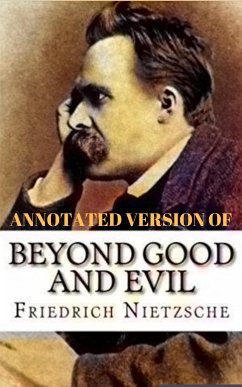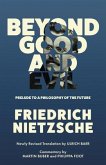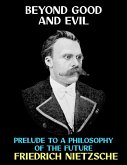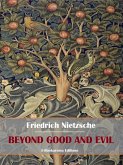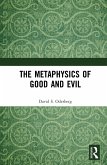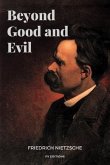This is the annotated version of the original Book. We had annotated this book and made a summary of 37,500 words approximate. This is around 55% to 65% approximate summary of the original. The Brief description of the eBook is written as follows. Beyond Good and Evil: is a book by philosopher Friedrich Nietzsche that expands the ideas of his previous work Thus Spoke Zarathustra with a more critical and polemical approach. It was first published in 1886. In Beyond Good and Evil, Nietzsche accuses past philosophers of lacking critical sense and blindly accepting dogmatic premises in their consideration of morality. Specifically, he accuses them of founding grand metaphysical systems upon the faith that the good man is the opposite of the evil man, rather than just a different expression of the same basic impulses that find more direct expression in the evil man. The work moves into the realm "beyond good and evil" in the sense of leaving behind the traditional morality which Nietzsche subjects to a destructive critique in favor of what he regards as an affirmative approach that fearlessly confronts the perspectival nature of knowledge and the perilous condition of the modern individual. Of the four "late-period" writings of Nietzsche, Beyond Good and Evil most closely resemble the aphoristic style of his middle period. In it, he exposes the deficiencies of those usually called "philosophers" and identifies the qualities of the "new philosophers": imagination, self-assertion, danger, originality, and the "creation of values". He then contests some of the key presuppositions of the old philosophic tradition like "self-consciousness", "knowledge", "truth", and "free will", explaining them as inventions of the moral consciousness. In their place, he offers the "will to power" as an explanation of all behavior; this ties into his "perspective of life", which he regards as "beyond good and evil", denying a universal morality for all human beings. Religion and the master and slave moralities feature prominently as Nietzsche re-evaluates deeply held humanistic beliefs, portraying even domination, appropriation, and injury to the weak as not universally objectionable. The work consists of 296 numbered sections and an "epode" (or "after the song") entitled "From High Mountains". The sections are organized into nine parts: Part One: On the Prejudices of Philosophers Part Two: The Free Spirit Part Three: The Religious Essence Part Four: Maxims and Interludes Part Five: On the Natural History of Morals Part Six: We Scholars Part Seven: Our Virtues Part Eight: Peoples and Fatherlands Part Nine: What is Noble?
Dieser Download kann aus rechtlichen Gründen nur mit Rechnungsadresse in A, B, BG, CY, CZ, D, DK, EW, E, FIN, F, GR, HR, H, IRL, I, LT, L, LR, M, NL, PL, P, R, S, SLO, SK ausgeliefert werden.

